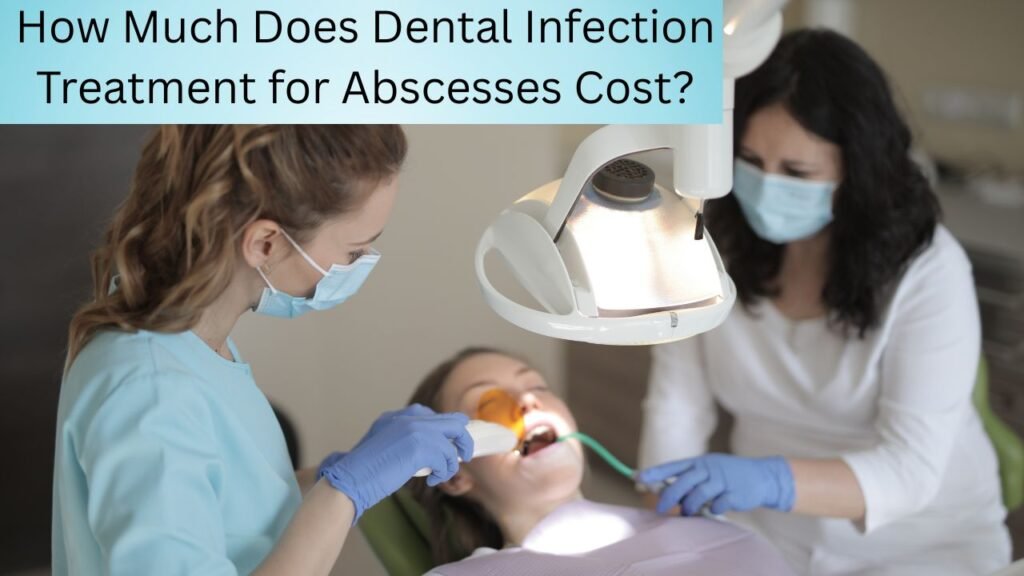What Is a Dental Abscess and Why It Gets Expensive Fast
So, you’re dealing with a nasty toothache, swollen gums, or a weird bad taste in your mouth? You might have a dental abscess, and trust me — you don’t want to ignore it. A dental abscess is an infection caused by bacteria that forms a pocket of pus. Sounds gross, right? It is. But it’s also painful, dangerous, and yeah, potentially expensive if you wait too long.
There are mainly two types:
- Periapical Abscess – at the root of the tooth
- Periodontal Abscess – in the gums, next to the tooth
Now here’s the kicker — early treatment might only cost a few hundred bucks, but delays can push your dental bill well into the thousands.

Symptoms That Could Cost You More If Ignored
Here’s what to look out for:
- Persistent, throbbing pain in the tooth or jaw
- Swelling in your face or gums
- Fever or fatigue
- Bad breath or a foul taste in your mouth
- Tooth sensitivity
🧾 Estimated Cost if Treated Early:
If you catch these signs quickly, you might only need antibiotics and a simple drainage procedure — typically between $150 and $400.
❗ But if you wait:
Pain gets worse. Infection spreads. Now you might need a root canal or even tooth extraction with bone grafting. That’s when costs climb to $1,000–$3,000+.
Cost Breakdown by Severity
| Severity | Likely Treatment | Estimated Cost (USD) |
|---|---|---|
| Mild (localized pain/swelling) | Drainage + Antibiotics | $150 – $400 |
| Moderate (increased pain/swelling, minor spread) | Root Canal Therapy | $700 – $1,500 |
| Severe (spread to jaw/neck/face) | Root Canal + Crown / Extraction + Implant | $2,000 – $5,000+ |
Typical Treatment Options & What They Cost
1. Antibiotics and Drainage
Used when caught early. Dentist drains the pus and prescribes meds.
💸 Cost: $100 – $500
🦷 Used when: Swelling is minimal, no tooth nerve damage.
2. Root Canal Therapy
If the infection reaches the tooth pulp, root canal is needed to save the tooth.
💸 Cost: $700 – $1,500 (can reach $2,500 in major cities)
🦷 Used when: Infection is inside the tooth, but the structure can still be saved.
3. Tooth Extraction
Sometimes the tooth’s beyond saving. Out it goes.
💸 Cost: $200 – $600 for simple extraction
🦷 Used when: Severe infection or abscess has damaged the tooth beyond repair.
4. Implant or Bridge After Extraction
Extraction is just the start. You’ll likely want to replace that tooth.
💸 Cost: $3,000 – $6,000 for implants
🦷 Used when: Long-term function and smile restoration is needed.
What Influences Dental Abscess Treatment Costs in the USA?
Several things can raise or lower your dental bill:
- Location:
Big cities = big bills.
Example: Root canal in NYC might cost 30–50% more than the same procedure in Alabama or Ohio. - Type of Tooth:
Molars are harder to treat. Root canal on a front tooth might be $700, while molars cost $1,500+. - Urgency & After-Hours Treatment:
Emergency visits or weekend care = extra fees ($100–$300 surcharge). - Dentist’s Experience & Equipment:
Highly experienced specialists charge more — and some clinics use cutting-edge tech that adds to the price.
Hidden Costs You Might Miss
Yeah, there’s more…
- X-rays or 3D Imaging: $50 – $300
- Follow-up Visits: $100 – $250 per visit
- Prescription Medications: $20 – $100
- Sedation or Anesthesia (if needed): $100 – $500
🧾 These extras can easily bump your total treatment cost by 20–40% if not accounted for.
Insurance Coverage: Will They Pay for This?
Short answer? Maybe. But don’t assume.
🦷 Most dental insurance plans cover part of the treatment, especially if it’s medically necessary:
- Antibiotics + Drainage: Often fully or mostly covered
- Root Canals: 50–80% covered
- Extractions: Covered if deemed necessary
- Implants: Rarely covered by basic plans
Ask your provider:
- Is emergency treatment covered?
- What’s the annual cap?
- Are specialist fees included?
If you’re uninsured, you’ll be paying out-of-pocket — so knowing your options is crucial.
How to Save on Abscess Treatment Costs
You’ve got options:
- 🔍 Community Dental Clinics – Search HRSA.gov for local, low-cost dental clinics.
- 💳 Dental Savings Plans – These can cut your bill by 10%–60%. Look into options like Careington or Aetna Dental Savings.
- 💰 Negotiate With Your Dentist – Many offer payment plans or cash discounts if you ask.
- 👩⚕️ Dental Schools – Get treated by supervised students for a lower cost.
Root Canal vs. Extraction: Long-Term Cost Comparison
| Option | Initial Cost | Follow-Up Cost | Total Estimated |
|---|---|---|---|
| Root Canal + Crown | $1,000 – $2,500 | Minor maintenance | $1,200 – $2,800 |
| Extraction + Implant | $300 – $600 | Implant: $3,000 – $5,000 | $3,500 – $6,000 |
💡 Root canals may seem pricey upfront, but they’re cheaper long-term than losing a tooth and replacing it.
Prevention Is Cheaper Than the Cure
Let’s be real — abscesses don’t happen overnight. They come from untreated decay, poor oral hygiene, and skipped dentist visits.
✅ Regular cleanings: $100 – $200 twice a year
✅ Fillings for early decay: $100 – $300
✅ Avoids: Abscesses, extractions, and $5,000 bills
TL;DR – Dental Abscess Treatment Cost Summary
- Mild infection? Drainage + antibiotics = $150 – $400
- Moderate infection? Root canal = $700 – $1,500
- Severe infection? Extraction + replacement = $3,000 – $6,000+
- Location, urgency, and insurance hugely affect costs
- Prevention and early care are way cheaper than emergency treatments
Find Your Perfect Dentist
Book appointments with top-rated dentists in your area